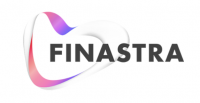
In association with Finastra

The expectations of banking consumers are changing worldwide: they are demanding more personalisation, knowledge, control and freedom in order to work towards their financial goals. Financial institutions have the opportunity to digitally transform their offering, build stronger relationships and financially empower their customers through technology.
The impact of the COVID-19 pandemic has accelerated the widespread adoption of digital banking around the world, but many people still face barriers to financial empowerment, including in the Kingdom of Saudi Arabia (KSA).
In a recent ethnographic study, Finastra taps into how consumers in KSA really feel about money, financial institutions and digital banking. It provides a unique insight into the motivations and barriers that consumers feel when it comes to money and banking, and offers an opportunity for banks to understand exactly what their customers are looking for to help them define their roles moving forward.
Tradition and vision
Saudi Arabia is a typically conservative country, and many Saudis have long taken a traditional approach to personal finance, favouring incumbent banking institutions. Unlike in many other countries, bank branches and in-person appointments remain widely used. “I trust the government bank,” says Nabeel, a 35-year-old respondent. “I usually visit the branch twice to three times a month.” As well as this, buying gold is a common saving practice.
However, new trends are beginning to emerge in Saudi Arabia. Efforts to diversify the economy away from oil include the Government’s “Vision 2030”, which is designed to develop public services and infrastructure. One of its aims is to encourage Saudis to spend their disposable income at home rather than travelling abroad.
This vision is transforming spending patterns and consumer behaviour. As cinemas have reopened and malls have become mixed-gender, spending has been spurred on. This change in lifestyle is also encouraging younger people to break with family traditions: many women are seeking more knowledge and independence, and some couples are choosing to live in their own apartments rather than with family.
Over half of the country’s population is under 25, and these young people are leading the adoption of digital finance. They show a desire for greater knowledge and control when it comes to banking. “I feel right now I’m missing both knowledge and money. I would like more knowledge to manage my finance,” says Fatima, from KSA. This is turning the tide on banking practices, leading to a greater preference for using banking apps rather than traditional banking in-branch.
Financial empowerment
In KSA, customers are showing that they want to be able to do banking “my way, within my limits and according to my timings”. Being able to plan, design and control their own financial activities creates financial empowerment: the feeling that people can either fulfil their financial goals or comfortably work towards them.
Aseel, from KSA, says, “Financial freedom is when I feel like I still have extra money after doing all the things that I have to do.”
So what is the role of the bank? In its studies, Finastra uncovers three key enablers that lead to good banking relationships, optimised finances and financial empowerment: knowledge, control and freedom.

There was a strong sense among respondents that they did not always understand conventional banking, making knowledge a barrier to financial empowerment. Challenger banks and digital banking are responding to this by providing more clarity, better access to information and easier control over money. With the move to cashless societies having been sped up by the pandemic, mobile payment apps are increasingly providing financial inclusion by helping to overcome the knowledge barrier.
A second priority is control. The more interaction and capabilities, immediacy, simplicity and functionality that banks and banking applications can provide, the more control consumers feel they have. Everyday language, a customer-centric approach and visual cues are being increasingly adopted to address this, along with options like Open Banking.
The final factor is freedom. For Finastra’s respondents, freedom encompasses peace of mind to enjoy their finances. Banks who provide a dynamic, clear picture of finances create this confidence for their customers. A second element is freedom from the system. A common financial goal among Finastra’s respondents was to become free from dependency and from insecure jobs, with setting up a business or second income being the most popular aspirations.
Digital banks and challengers are revolutionising customer relationships in the banking industry. All financial institutions have the opportunity to provide their customers with the knowledge, control and freedom to transform the way they manage their money guide them along their journey toward meaningful financial empowerment.
Read the full Financial Empowerment KSA report here.


